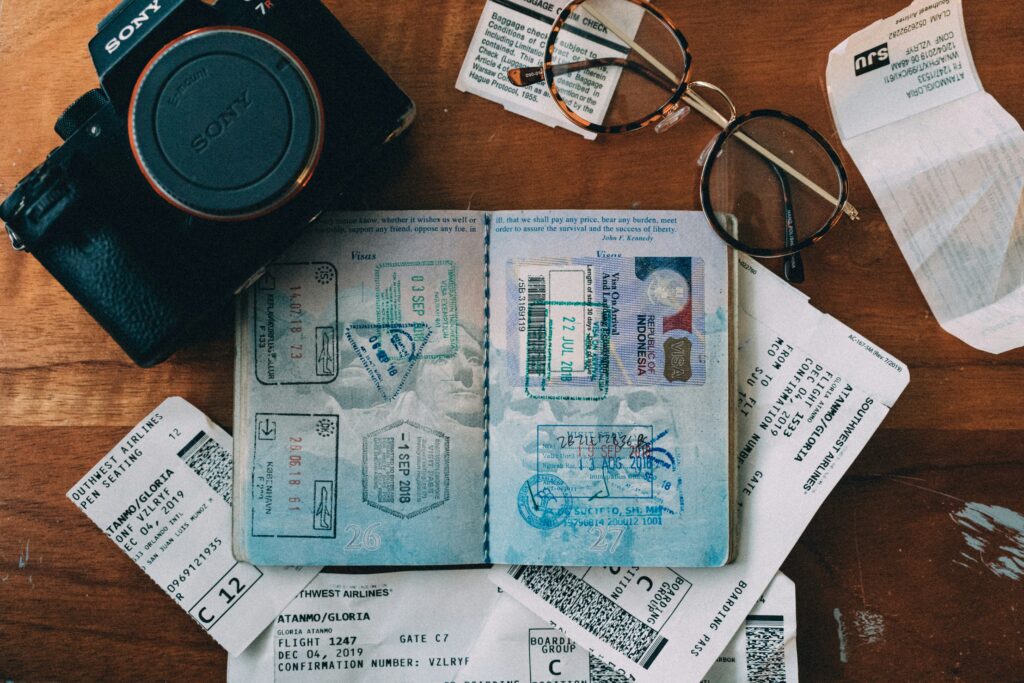Essential Tips for Traveling Abroad
Traveling abroad can be an exciting adventure, offering new experiences, cultures, and memories. However, it also requires careful planning and preparation to ensure a smooth and enjoyable trip. Here are some essential tips for traveling abroad to help you get ready for your international journey.
1. Plan Your Finances
One of the first steps in preparing for a trip abroad is managing your finances. Before you leave, make sure you have a sufficient amount of local currency. Finding a reliable money changer in Singapore can ensure you get a good exchange rate and avoid high fees. Additionally, inform your bank of your travel plans to avoid any issues with your cards being blocked due to suspicious activity.
Carrying a mix of payment methods, such as credit cards, debit cards, and cash, can provide flexibility in different situations. Consider setting up a travel-friendly credit card that offers benefits like no foreign transaction fees or rewards on travel expenses. Having an emergency stash of cash in a secure place can also be beneficial if you encounter any issues with electronic payments.
2. Check Your Passport and Visas

Second tips for traveling abroad is to ensure your passport is valid for at least six months beyond your travel dates. Some countries require this for entry. Additionally, check if you need a visa for your destination. Apply for visas well in advance to avoid any last-minute complications.
Each country has different visa requirements and processing times, so it’s important to research and understand the specific requirements for your destination. Some countries offer e-visas or visa-on-arrival options, while others may require you to apply in person at an embassy or consulate. Keep copies of your passport and visa in both physical and digital formats in case of loss or theft.
3. Get Travel Insurance
Third tips for traveling abroad is about insurance. Travel insurance is crucial for covering unexpected events such as medical emergencies, trip cancellations, or lost luggage. Choose a policy that covers your specific needs and includes comprehensive health coverage, especially if you plan on engaging in adventurous activities.
When selecting a travel insurance policy, consider factors such as coverage limits, exclusions, and the claims process. Ensure the policy covers medical evacuation and repatriation, as these can be costly in the event of a serious illness or injury. It’s also wise to check if the insurance includes coverage for COVID-19-related incidents, given the ongoing global pandemic.
4. Research Your Destination
Learn about your destination’s culture, customs, and laws to avoid any unintentional offenses. Understanding local etiquette, dress codes, and tipping practices can help you blend in and show respect for the local culture. Also, research key phrases in the local language to help you navigate common situations.
Familiarize yourself with important aspects such as local transportation options, safety tips, and major attractions. Understanding the local currency and exchange rates can help you budget more effectively. Additionally, consider joining online travel forums or groups to get insights and recommendations from fellow travelers who have visited your destination.
5. Pack Smart
Pack according to the climate and activities planned for your trip. Make a checklist to ensure you don’t forget essentials like travel adapters, medications, and toiletries. Keep important documents, such as your passport, visa, travel insurance, and itinerary, in a safe and accessible place.
Opt for versatile clothing that can be layered and worn in different settings. Pack lightweight, wrinkle-resistant fabrics that can be easily washed and dried. Use packing cubes or compression bags to organize your belongings and maximize space in your luggage. Don’t forget to pack a reusable water bottle, as staying hydrated is essential, especially during long flights or in hot climates.
6. Stay Connected
Make sure your phone is set up for international travel. Check with your service provider about international plans or consider purchasing a local SIM card upon arrival. Having a reliable way to stay connected can be crucial for navigation, communication, and emergencies.
Before your trip, download useful travel apps such as maps, translators, and transportation guides. Offline maps can be particularly helpful in areas with limited internet access. Consider setting up a virtual private network (VPN) to protect your online privacy and security while using public Wi-Fi networks.
7. Secure Your Home
This is one of the tips for traveling abroad that people often forget to mention. Before leaving, ensure your home is secure. Arrange for someone to check your mail, water your plants, and take care of any pets. Unplug non-essential electronics to save energy and reduce the risk of electrical fires.
Notify your neighbors or a trusted friend about your travel plans so they can keep an eye on your property. Set timers for lights to create the illusion that someone is home. If you have a home security system, ensure it is activated and functioning properly before you leave.
8. Stay Healthy

Visit your doctor for a check-up and ensure you have all necessary vaccinations for your destination. Pack a basic first aid kit with items like bandages, antiseptic, pain relievers, and any prescription medications you need. Stay hydrated and be cautious with food and water to avoid stomach issues.
Research any health risks associated with your destination, such as mosquito-borne diseases, and take appropriate precautions. Consider purchasing travel health insurance that covers medical treatment and evacuation. It’s also a good idea to carry a copy of your medical history and a list of medications in case you need medical attention while abroad.
9. Plan for Connectivity
This is a really important tips for traveling abroad! Staying connected while abroad is essential. Check if your phone plan includes international roaming or consider getting a local SIM card. Download useful travel apps, such as maps, translators, and transportation guides, before you leave.
Having access to reliable internet can help you navigate unfamiliar areas, stay in touch with loved ones, and access important information. Consider carrying a portable power bank to keep your devices charged throughout the day. If you’re traveling to a remote area, research options for emergency communication, such as satellite phones or emergency beacons.
10. Be Prepared for Emergencies
Know the local emergency numbers and the location of your country’s embassy or consulate. Keep copies of important documents and emergency contact information both with you and in a secure online location.
In case of an emergency, having quick access to critical information can make a significant difference. Consider enrolling in your country’s travel registration program, which can provide updates on safety conditions and assist you in case of an emergency. Familiarize yourself with the local healthcare system and know how to seek medical assistance if needed.
Tips for Traveling Abroad: Conclusion
Traveling abroad can be a rewarding and enriching experience with the right preparation. By managing your finances with a reliable money changer in Singapore, ensuring your travel documents are in order, and packing smartly, you can minimize stress and focus on enjoying your trip. Stay informed, stay connected, and most importantly, stay safe as you explore new destinations. By knowing some essestial tips for traveling abroad, we wish you the amazing experience!
Taking the time to plan and prepare for your international journey can help you avoid common pitfalls and make the most of your travel experience. With careful consideration of these essential tips, you can embark on your adventure with confidence and peace of mind.